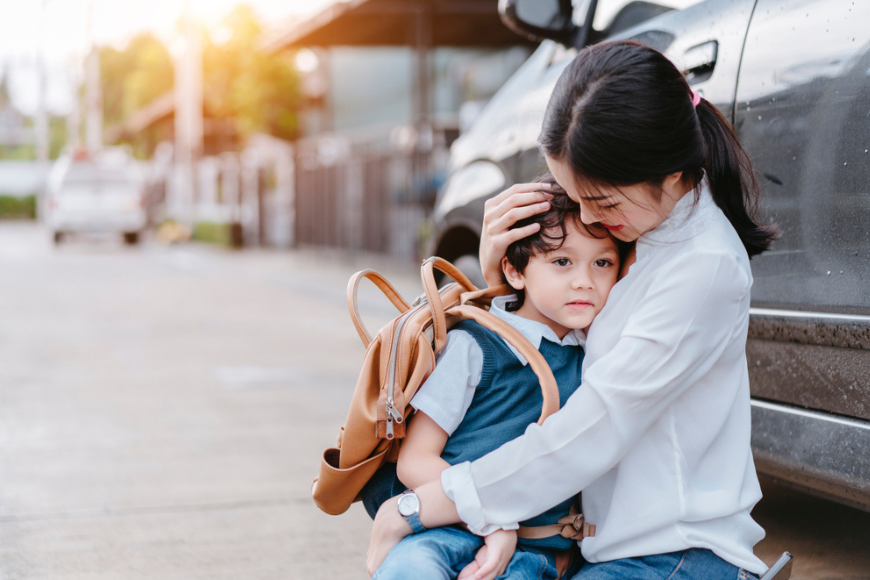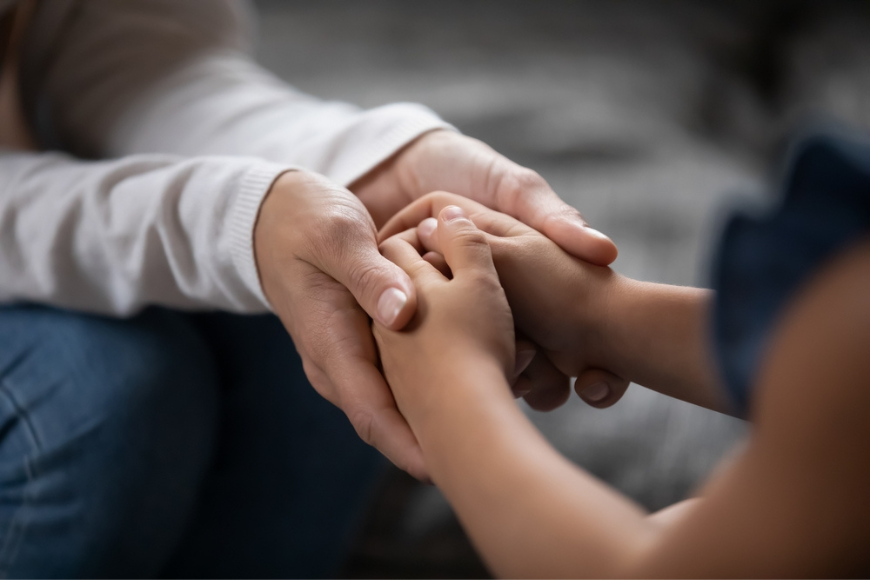The Bahrain Ministry of Education information is all here along with info about private and special needs education.
27 August 2013
| Last updated on 19 June 2017
Private Education
The Directorate of Private education is the responsible body for supervising the Private Schools and Institutes. The Directorate with the coordination of the other directorates at the Ministry are providing all the private educational institutes with technical support and assistance such as finding teachers to be appointed; providing free Arabic language, Islamic education, Bahrain history and geography textbooks; and assigning specialists to supervise the teachers of those subject-matters.
The private educational institutes comprises the following types:
Nurseries: They are under the supervision and control of the Ministry of social Development. They follow the women societies and charitable organizations, and some others follow individual institutions.
Kindergarten: There are a variety of kindergartens in Bahrain, some follow the women societies and charitable organizations, some follow individual institutions and others are attached to private schools as an educational level within their systems. They are attended by children of three to six years old.
Private Schools: These schools differ among themselves because of the variation of the educational system each school follows / adopts. Private schools in Bahrain are divided into two types as follows:
National Private Schools: They are established and run by Bahraini citizens or with participation of non-Bahraini for the purpose of education on the basis of the national curricula or based on the curricula approved by the Ministry, under its supervision, and which primarily cater to Bahraini students. These schools have various educational levels, starting from kindergarten, primary, intermediate and secondary. They offer bilingual programs, i.e., subjects are taught in Arabic and English.
Foreign Private Schools: They are established, run and finance by foreign persons or establishments in Bahrain for the purpose of education in accordance with foreign curricula and educational supervision, and awards certificates of the country of origin which is an extension thereof and which primarily cater to foreign students. These schools have various educational levels, starting from kindergarten, primary, intermediate and secondary. Arabic language is taught in all foreign schools that accept Arab students in addition to Islamic education for all Muslim students.
Foreign Community Schools: They are established and financed by foreign communities in the State of Bahrain for the purpose of educating their children only.
Educational Institutes and Centers: They differ among themselves because of the variation of the programs they offer. Some of them follow the commercial establishments and others follow individual Bahraini citizens. They offer training programs in foreign languages, computer, electronic typing, and various skills in communication, management and commerce...etc.
Each private educational institute has its own curricula, study plans, courses and textbooks. They are submitted to the Ministry of education for approval. The Ministry has the right to modify or stop any curriculum or textbooks that is incompatible with the religious and national values of the country.
The Directorate of Private education is responsible for supervising Arabic language, Islamic education and social studies at the private schools. The Ministry provides these schools with free textbooks of those subjects and assigns specialists to supervise the teachers of those subjects.
The private schools comply with the curricula and textbooks approved by the Ministry that related to Arabic courses for Arab students, Islamic education for Muslim students, and Bahrain history and geography for all students. The minimum number of periods for these subjects to be taught weekly in a foreign private school is as follows:
6 periods weekly for Arabic language (first three grades of primary education)
4 periods weekly for Arabic language (the rest grades of primary, intermediate and Secondary education)
One period weekly for Islamic education for Muslim students at all levels.
All the students take social studies courses according to the Ministry's decision.
Legislations and Regulations show the full text of the Private Educational and Training Institutions in the State of Bahrain.
http://www.moe.gov.bh/en/education/private.aspx#.UdK0Z_lTBR0
Special Education
The Directorate of Special Education is responsible for identifying the handicapped students and the supervision of students with special needs in public schools as well as special institutions abroad.
Some government schools have remedial classes for slow learners and low achievers according to the school's needs for these classes. The Ministry also adopts in a group of schools the project of integrating students with special needs into ordinary classes together with their normal peers with the aim of avoiding their separation from the environmental life, i.e., the ordinary schools and classes.
The Directorate of Special Education takes also the responsibility of discovering other cases such as mentally retardation, deaf, speech defect, and blind in government schools and transferring them to the specialized institutions and centers supported by the Ministry.
A number of specialized institutions are available in Bahrain such as:
The Saudi-Bahraini Institute for the Blind: It is a regional institute located in Bahrain. It provides educational training and cultural programs in addition to full health, social and psychological care for sight-impaired boys and girls. The institute uses the same grade structure and curriculum as the regular public schools for primary and intermediate levels. Students who complete their intermediate level are transferred to regular secondary schools, which provide them with special care. The institute uses Braille as a method of instruction.
For more information click here>>
Al-Amal Institute: It is established by Child and Motherhood Care Society with the aim of fulfilling the need of the society in finding such specialized educational services in special education. Admission requirements for the Al-Amal Institute specify that students be less severe retarded and do not have any other disabilities in addition to mental retardation. The student's age must be 6-12 years old for the educational program and 12-15 years old for the vocational training program. The students are classified according to their learning abilities, not the academic levels.
The Institute offers individualized educational services for the mentally retarded through designing an individual educational-instructional plan for each student using special curricula adapted to the abilities and needs of students which include various skills such as arithmetic, language, social and motor skills.
Social Rehabilitation Center: It is run by the Ministry of Social Development, where a variety of vocational and academic rehabilitation programs for handicapped children and youth are provided. It consists of four units as follows
Hearing Defect Unit: The students' age in this unit must be between 3-15 years old. The unit uses the same grade structure and curriculum as the regular public schools for primary level; and adopts the following methods of instruction: speech training; reading; writing; lip-reading; sign language; and finger alphabet.
Special Education Unit: The students' age in this unit must be between 12-15 years old. The duration of study in this unit is two years can be renewable according to the students' abilities. It is mainly for mentally retarded children with less severe retardation. The unit's program includes academic, social and pre-vocational skills, which help the students to integrate into the society, and is considered as a traditional period to the vocational unit.
Vocational Rehabilitation Unit: The students in this unit must be in the age of sixteen. The unit's programs are provided for the students aiming at achieving the economic efficiency by making the students work in a certain occupations and be adapted to it.
Craft Workshop Unit: The students in this unit must be in the age of sixteen. It is provided for handicapped youth who are unable to work in an ordinary labour market conditions by offering them with an opportunity to be trained on various occupational areas adapted to their physical abilities and intellectual levels. The occupational training programs focus on the following: carpentry; farming; tailoring and handiwork; home economics; special skills; machine repair and handicrafts.
Non-Formal Education
The Directorate of Continuing Education at the Ministry of education organizes educational programs for two categories in the society; the first one is the illiterates, and the second includes those who have passed successfully literacy and follow-up stages, and are willing to continue their education, in addition to the continuing education programs. The following is a brief description of the Literacy and Conitinuing Education programs.
Literacy
The duration of study in literacy and adult education program is six academic years divided into the following:
Literacy stage: It is considered as a basic stage for those who cannot read and write. It lasts for two academic years. The subjects taught in this stage include Islamic education, Arabic language and mathematics. It is equivalent to the fourth grade level of basic education.
Follow-up Stage: It is lasts for two academic years. Those who obtained literacy stage certificate can attend it. It aims at developing the basic skills the learners have already achieved in the literacy stage. In completion of this stage, students are awarded a certificate equivalent to the sixth grade certificate of formal primary education. The subjects taught in this stage include Islamic education, Arabic language, mathematics, English language, sciences, and social studies.
Consolidation Stage: This follows the follow-up stage and is equivalent to the formal intermediate level. Those who completed follow-up stage and are interested in continuing their education attend it, or by those who did not complete the formal education for one reason or another. The curriculum' content applied in this stage is the same as that of third cycle (intermediate level) of formal Basic Education. It is revised to include terminological bases to be given in tow instead of three years. The subjects taught include Islamic education, Arabic language, mathematics, English language, sciences, and social studies (history and geography).
Continuing Education
The Directorate of Continuing Education organizes several continuing education programs for adults which include:
Language courses: English, Arabic for foreigners, French, Germany; and Japanese.
Specialized courses: auto mechanic, electrical appliances maintenance, book classification silk, library management and services, computer maintenance and network, E. commercial, computer literacy programmers, Arabic language and math teaching methods for 1st cycle primary students' parents.
Specialized courses to upgrade kindergarten teacher efficiency.
http://www.moe.gov.bh/en/education/nonformal.aspx#.UdK04flTBR0











































































.jpg?itok=Vve42DOW)












